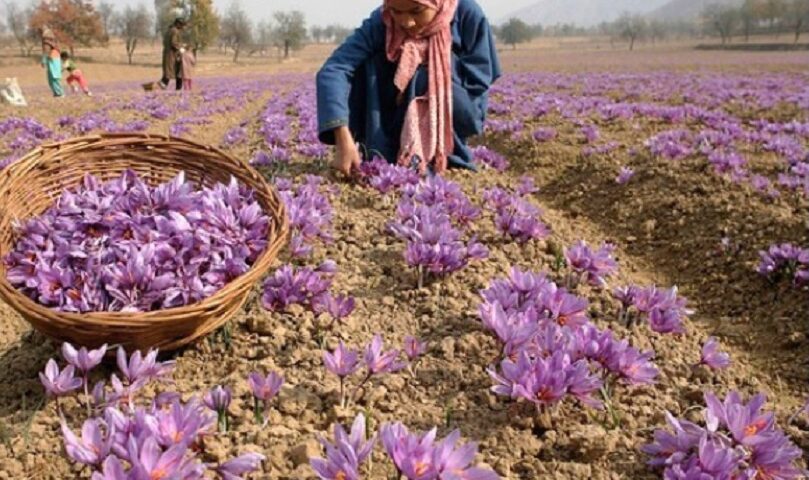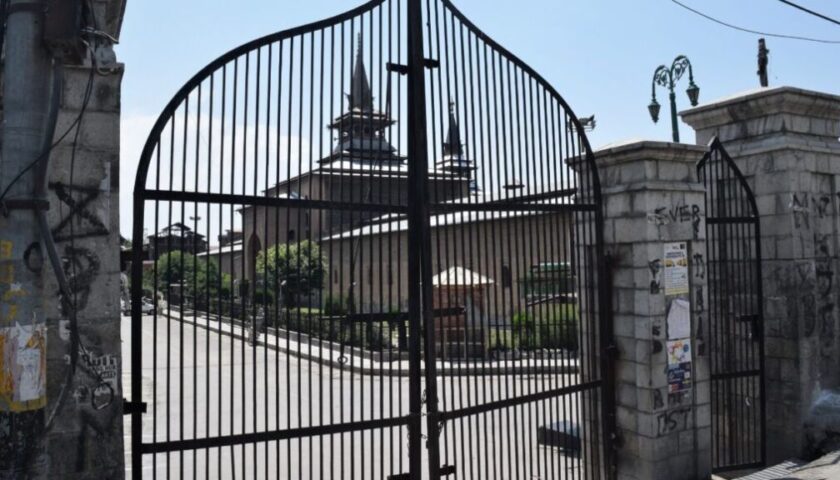A war of words broke out between the Home Ministry and the Election Commission over the holding of the Srinagar Lok Sabha by-poll, which saw large-scale violence on Sunday.
The MHA claimed that it had suggested the EC that atmosphere was not conducive for the polls, however, its advice was “ignored”.
The Election Commission hit back, saying it is not bound to consult the central government before holding any election.
Massive violence and a very poor turnout marred the Srinagar Lok Sabha by-poll on Sunday.
At least eight civilians were killed and scores injured in firing by security forces as mobs tried to attack some polling stations in Srinagar parliamentary constituency that on Sunday recorded a poor seven percent voting in a by-poll — the lowest in the state in three decades, officials said.
The by-poll to the Lok Sabha constituency — spread across three districts of Srinagar, Budgam, and Ganderbal — was marred by widespread violence with police claiming that nearly 200 incidents of violent protests took place in central Kashmir.
Immediately after the announcement of the schedule for the by-elections on March 10, the Home Ministry had sent a strongly worded letter to the Commission, saying there was no prior consultation with it regarding the by-polls in Srinagar and Anantnag constituencies.
The Home Ministry had advised that polling should be delayed and preferably held after panchayat elections are conducted in the next few months.
However, the Election Commission ignored the Home Ministry’s advice and went ahead, sources in the ministry said on Monday.
Later, the Commission sought to reject the claims of the MHA, saying it was its constitutional obligation to hold the by-poll for Srinagar parliamentary constituency before April 16.
“State government was consulted on the subject as it is responsible for law and order and security issues. MHA is only responsible for providing central paramilitary forces. ECI is not bound to consult MHA before holding any elections,” an EC source said.
The source said the state government had apprised the Commission that the preparation for free, fair and peaceful elections are being made and a comprehensive deployment plan was also worked out by Jammu and Kashmir police.
“ECI is responsible for the overall assessment of the prevailing situation for holding elections. In the assessment of EC, if prevailing conditions were conducive for holding of Panchayat Elections by the state government, then holding of parliamentary elections is also possible,” the source pointed out.
The EC sources said in the case of Manipur, the MHA had wanted to postpone the Assembly Elections there.
“That too was unsolicited advice. But EC went by its own assessment and held peaceful polls recently. Even the Supreme Court had observed that it is the EC, not the MHA who would make an assessment of environment of conducting elections,” the source said.
There were 190 incidents of stone pelting, 120 polling booths were made dysfunctional, 24 EVMs were looted, two schools burnt down, eight people were killed and 150 others were injured in Srinagar on Sunday.
In the wake of violence in Srinagar, the Election Commission yesterday deferred the election in the Anantnag parliamentary constituency till May 25.
Sources in the Home Ministry said for holding the by-polls in both the constituencies, the Election Commission held a meeting with a Joint Secretary on March 17 and sought 300 companies (30,000 personnel) of paramilitary forces and the request was duly accepted and fulfilled.
The number of paramilitary personnel sought by the EC was very high. But despite the presence of huge security personnel, the violence on Sunday was unusually high, they said.
There is an atmosphere of fear in both the constituencies following the poll boycott call given by the separatists. Besides, such large-scale violence had not taken place in the Kashmir Valley in a single day in last 15 years, the sources said.
Normal life has been affected in the Kashmir Valley due to the strike called by separatists. Shops, fuel stations, and other business establishments were shut, while attendance in banks and government offices was low.
Internet services remained suspended for the second day yesterday. Public transport was off the roads, while private transport was minimal.
Sunday, February 22, 2026
Breaking News
- No Vande Bharat Between Srinagar and Jammu — For Now: Railways Cite Infrastructure Gaps
- BJP’s Kashmir Show of Strength: Party Targets Omar Govt Over ‘Doublespeak’, Revives 2010 Killings Issue
- Mehbooba Mufti Demands 50% Import Duty on Apples to Protect J&K Horticulture Sector
- Kashmir’s Warmest February Threatens Hydropower: Early Snowmelt Raises Energy Security Concerns
- Trump Iran Nuclear Deal Deadline: 10–15 Day Ultimatum, Tehran Retaliation Threats & What’s Next



